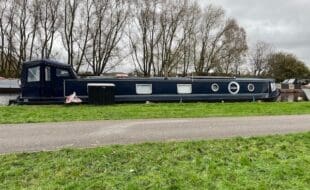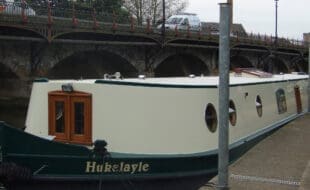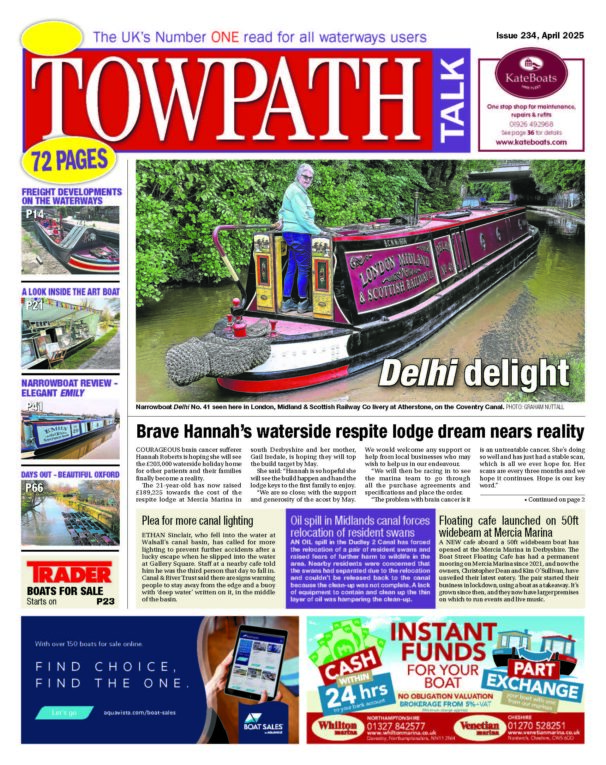By Phil Pickin
IT WAS back in February that the editorial team at Towpath Talk, in partnership with the IWA’s Sustainable Boating Group (SBG), announced the Sustainable Boating Awards. This new award scheme aims to recognise the pioneers of sustainable boating by awarding two prizes for commercial and non-commercial innovations.
The SBG, which was established in early 2020 by a group of boat owners and IWA supporters united in their vision of a sustainable inland waterways, has, over the past few years, highlighted not only the need for sustainability when it comes to the waterways but also had a hand in putting forward ways in which this can be achieved. The chairman of the group is retired engineer Bowman Bradley, who first became interested in the waterways back in the mid-1970s when, along with a group of fellow students, he hired a boat for a holiday in Warwickshire. After gaining a bachelor’s degree in physics, he embarked on a long career as an engineer, working for a number of chemical companies before retiring 20 years ago. It was at that time he bought his own “boring” (his words, not mine) 57ft narrowboat fitted with an Isuzu engine.
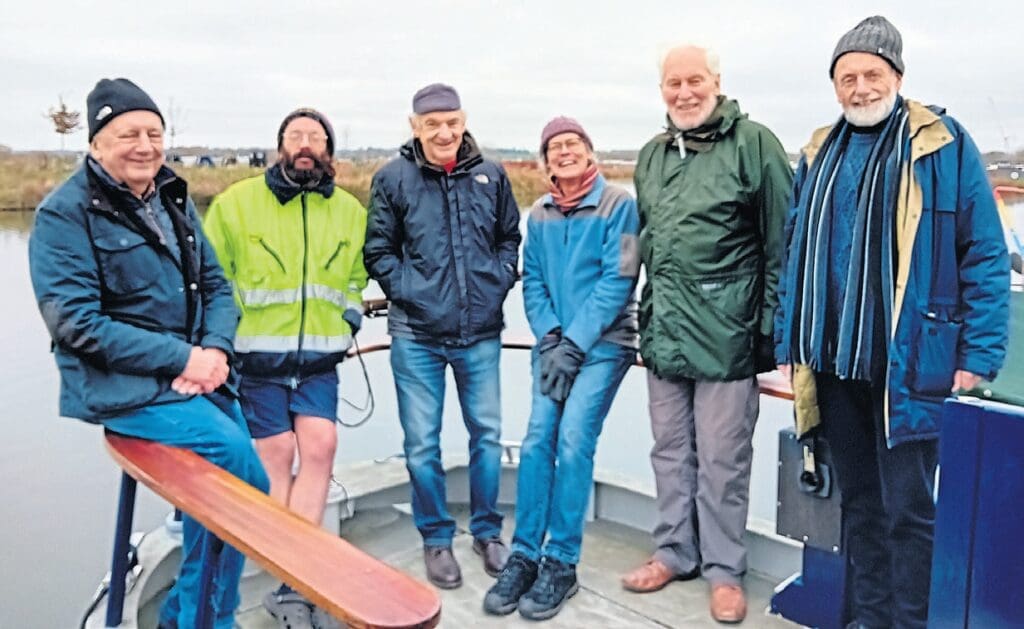
Many of the other members of the group are boat owners who own a variety of boats, including at least one historic narrowboat. Bowman’s own connection to the waterways led to an appreciation of the IWA and the work they have done over many years to reopen and keep open the UK’s waterways, which led to him being a long-term member of the association. He uses the word “proud”when describing the work done by the IWA over many years, and it is with that in mind that the SBG was formed, as, in his opinion, the waterways are facing just as big a threat now as they did after the war.
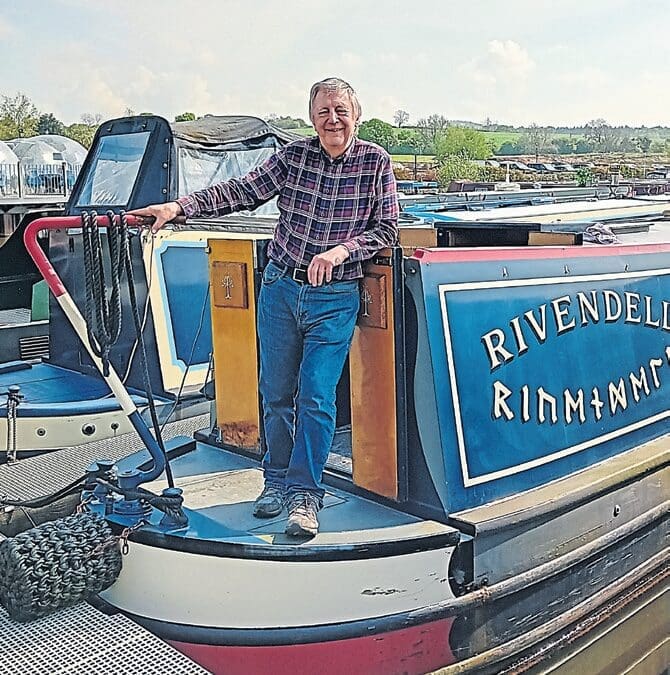
The formation of the SBG was a collaborative effort, a testament to the power of like-minded individuals coming together. Many of these individuals are boat owners with engineering and technical skills, united in their search for a solution. One such contributor is Jonathan Mosse, a regular writer for Towpath Talk, who has made significant progress in exploring the use of the diesel fuel alternative HVO. This fuel is likely to be a mainstay on the waterways for years to come due to the longevity of the boats and engines currently in use. But no matter how long the current fleet of boats lasts, they will eventually need to be replaced. The question is, with what? As Bowman points out, there are still many unknowns due to new developments in areas such as fuel cells and batteries, but the general consensus is that the future narrowboat will be electrically propelled. The need to decarbonise and make the waterways more sustainable is a pressing issue, and Bowman and the SBG members are concerned that, with the global shift away from fossil fuels the waterways could be left behind. The group’s view is that there is a need to explore alternatives to diesel sooner rather than later; if action is not taken, the waterways could face a significant decline. Vital input What is evident is the group’s pride in producing information and recommendations, parts of which have been taken up by Canal & River Trust and the Government via the APPGW and the DfT.
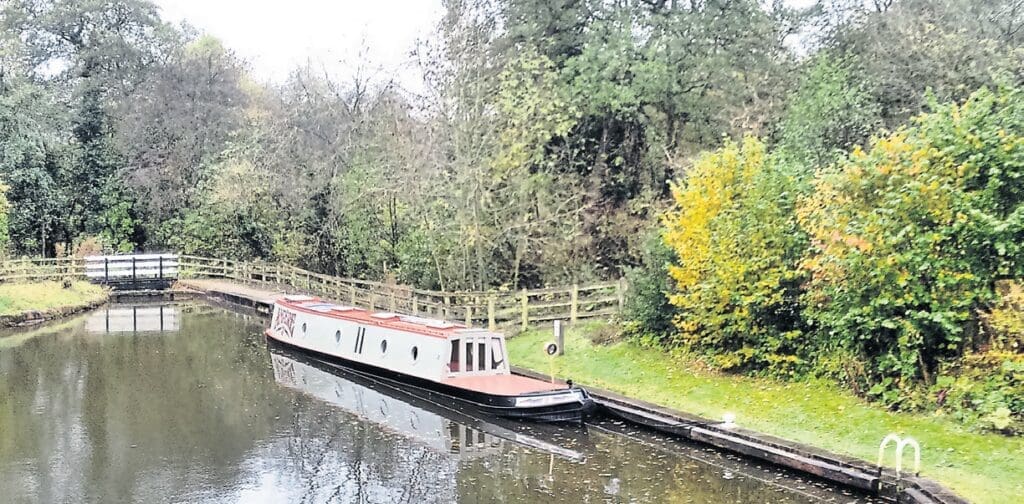
The group was formed to help secure the future of the waterways, so having input into important organisations such as these is vital. This year will see the awarding of the first Sustainable Boating Awards, and Bowman said that as Towpath Talk had always supported the work of the Sustainable Boating Group, they were more than happy to take the opportunity to collaborate on the awards. And with the closing date for entries being July 1, time is running out if you want to nominate a recipient. Nominations are being sought for individuals and organisations or businesses who are deemed to have made a valuable contribution during the last year. The two categories for the awards are non-commercial, for individuals or groups representing charity or community organisations, and commercial for waterway-related businesses.
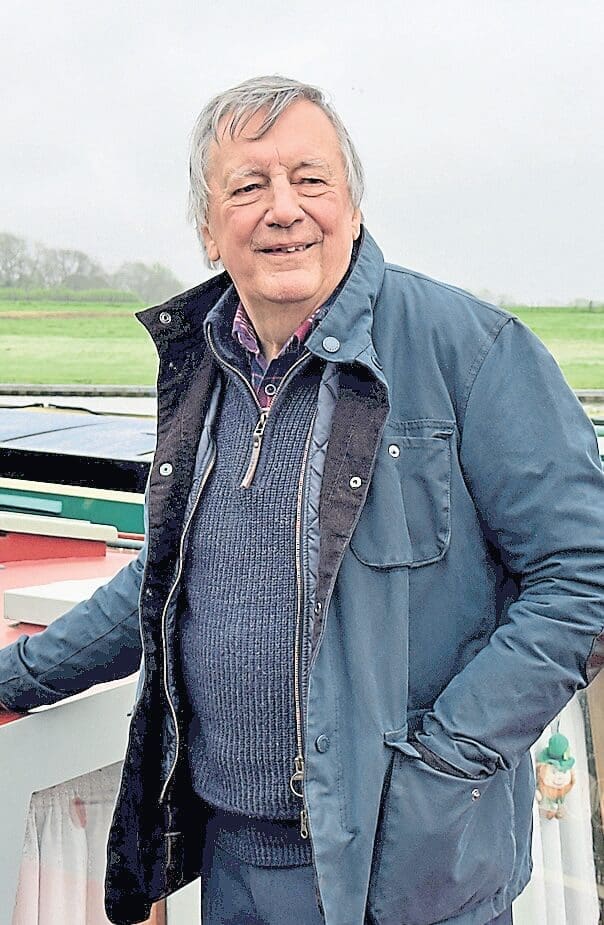
By his own admission, Bowman is not an eco-warrior who you will find glued to a road somewhere, but he and the rest of the SBG are passionate about securing the future of the waterways. The SBG’s motivation is to put to good use years of combined experience and expertise in engineering and associated disciplines for the benefit of the waterways for years to come.
Sustainable Boating Awards Nominations and Entries:
There are two categories for the awards as follows: Group one: Non-commercial – this category is for individuals or groups representing charity or community organisations. Group two: Commercial – this category is for waterway-related businesses.
Judging panel and criteria: The judging panel will be made up from three separate bodies; those being one or more individuals from Towpath Talk, the IWA, and an independent representative from the waterways community – no single body shall have a majority. In terms of criteria, the award will be made to the category winners which, in the opinion of the judging panel, have made the greatest contribution to making inland waterways boating more sustainable in the previous calendar year (2023).
Submissions: In the first instance, send your written nomination (not exceeding 750 words – and up to three photographs may be included) via email to: IWATTsustainable. [email protected]
The closing date for entries/ nominations will be July 1, 2024, after which these will be publicised. The award will be judged by a panel comprising representatives of the IWA, Towpath Talk and the waterways community. The winners will be announced at a presentation event later in the year

